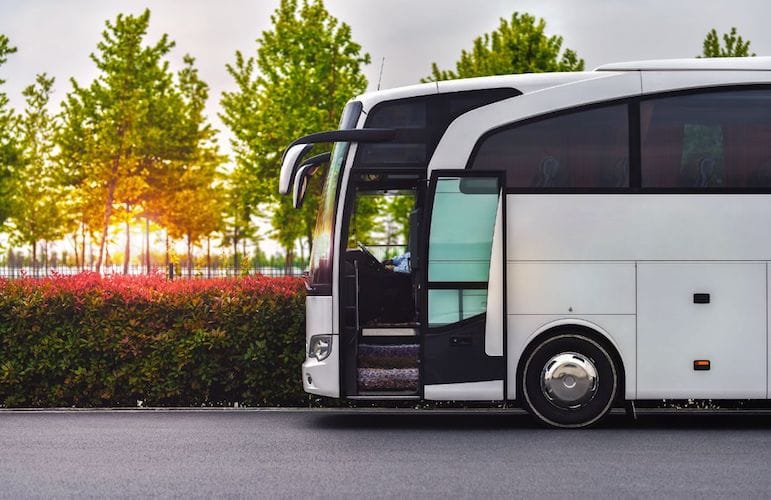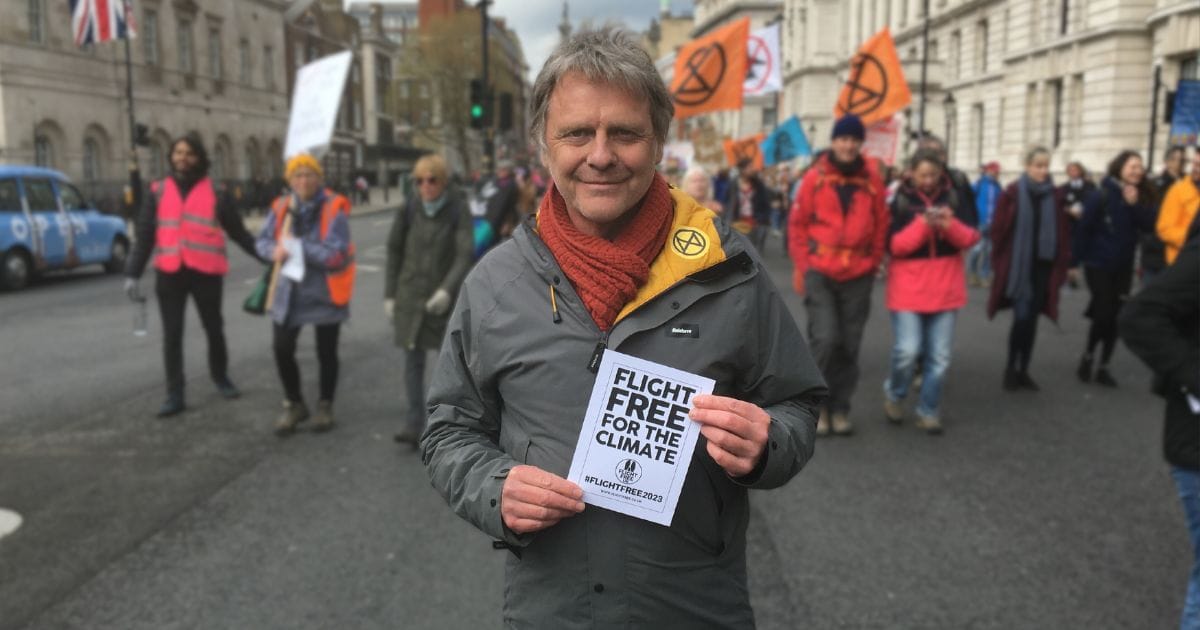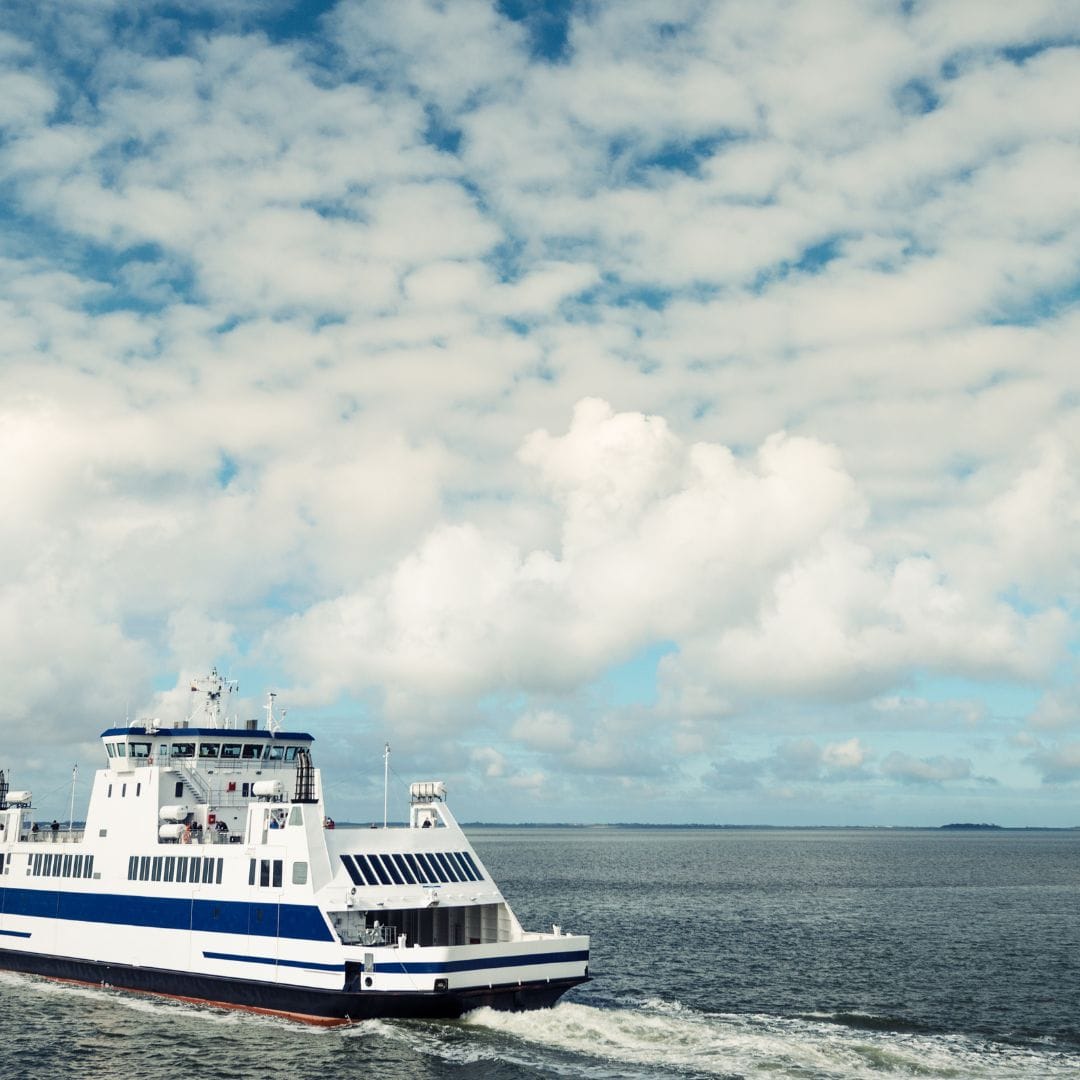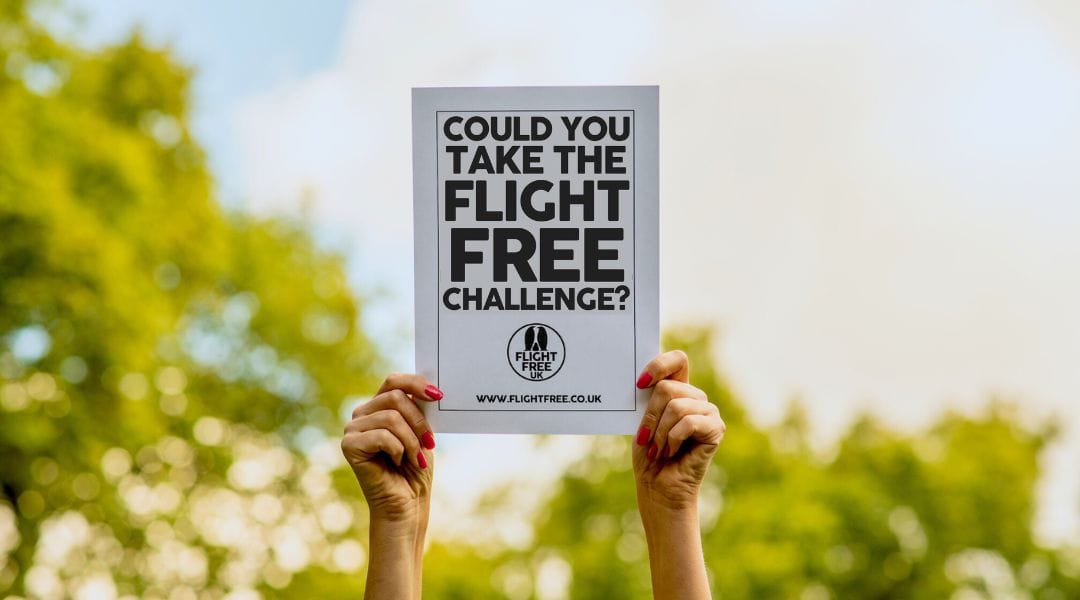The Covid-19 pandemic brought huge disruption, challenges and difficulties to many of our lives.
One effect was that it grounded all aircraft for a time, which on face value is the aim of our campaign. However, the effects are more nuanced.
Here we examine the many effects of the pandemic, and its legacy on the work of Flight Free UK.
An immediate drop in emissions
The grounding of aircraft and the general halt to activities (including car use) saw a 7% drop in global emissions in the first two months of the pandemic. The impact on the environment was positive and immediate: in heavily-polluted cities such as Delhi, air pollution cleared up significantly to the extent that residents could see the Himalayan mountains in the distance for the first time.
Quiet skies around airports meant that daily contrails and air pollution disappeared. Nature returned to places where our human activity had driven it out. The remarkable speed at which the natural world thrived holds promise for a low-carbon future.
However, it also revealed the scale of the challenge. In order to meet our climate targets we need to see a similar drop in emissions year on year. This transformation was essentially the result of our modern society coming to a complete stop, so it shows just how much has to change in terms of how we live our lives, if we are to reach our climate goals.
The phenomenon of ghost flights
About a year into the pandemic it became clear that airlines were still flying some planes – most of them empty. This was thought to be so airlines could keep their landing slots at airports, given that the rules state that landing slots need to be used a certain percentage of the time, otherwise they lose them. German airline Lufthansa predicted it would have to fly 18,000 empty planes, and in the UK, 40,000 planes flew empty or nearly empty between 2019 and 2022.
We launched a petition to ask the UK government to change the slot rules so planes didn't have to fly empty. Here is the outcome of that petition.
How the grounding of aircraft affected our behaviour
For some, being forced to stay at home meant that they began to appreciate their surroundings. People were forced to look closer to home for holidays, and many embraced this. For some, it broke a flying habit and inspired a shift in mindset that would stick after the pandemic. People realised that they didn’t need to fly to have a good time after all.
On the other hand, the pandemic created a lot of pent-up demand for flights, with many people champing at the bit to get away after having been confined to the UK for so long.
Both of these are natural reactions to having our freedom of choice taken away. At Flight Free UK, we can capitalise upon the new-found enthusiasm for UK-based travel, while at the same time communicating to those who have re-taken to the skies that not flying can be a positive choice for people and planet. Meaningful, long-lasting behaviour change happens by design rather than disaster; if we make this as a choice rather than have it forced upon us, it will create the societal shift away from flights that we need to see.
Bounce back and bailouts
Air bookings were predicted to reach pre-pandemic levels in 2023. The shift to low-carbon behaviours that many people hoped for as a result of the pandemic never materialised.
Partly this is a result of government prioritising the recovery of air travel, and granting bailouts to struggling airlines. We co-signed a letter asking for any bailout to come with heavy environmental conditions, given that airlines benefit from no taxation in the good times, so should not expect state support in the bad times.
A shift in Flight Free UK messaging and tactics
Flight Free UK’s main campaign focus is to challenge people to take a year off flying. We spent over a year collecting pledges for Flight Free 2020, resulting in over 6800 people choosing to stay grounded that year. Then of course the pandemic came along and everyone took a year off flying.
It therefore felt odd to be asking people to take a flight-free year, given that we’d all just done that. We changed the wording to be 'flight free for the climate,’ making it clear that this was a conscious choice to reduce emissions, rather than a restriction because of the pandemic.
The challenge of travel restrictions
Not being able to travel meant that we couldn’t fulfil our campaign aim of ‘inspiring people to travel without flying.’ We dedicate a lot of resources to reassuring people that not flying doesn't mean not travelling and showcasing the alternatives, so for those alternatives not to be there caused a significant challenge to our work.
Even when travel started to open up again, the traffic light system of countries meant that overland travel was still almost impossible: flights travel directly to green list country, but in order to travel there overland, you would need to travel through amber or red list countries, so it wasn’t possible. Those desperate for a holiday who might otherwise have chosen to take the train just flew.
One crisis overshadowing another
The Covid pandemic came along just as we had started using the word ‘crisis’ to describe the climate challenge. Many councils across the UK, and the UK Parliament, declared a Climate Emergency. But the more immediate crisis of coronavirus came along, and one crisis trumped another.
The climate crisis hadn't gone away, but now most of the air time and column inches were taken up with this more immediate crisis of Coronavirus. From having a huge amount of press interest in Flight Free UK’s work, there was suddenly none.
One positive observation was that we saw how people pulled together to address the huge and very real challenge of Covid-19, even if it meant making sacrifices. We did it because of the benefit to wider society.
This is the kind of mindset needed to address the very real, if less tangible, challenge of the climate emergency. Covid showed we could make the necessary changes if we had to. Now we need to apply that thinking to our response to the climate crisis.
Work travel and moving online
One long-term effect has been the impact on work travel, and the rise of online and remote working. It very quickly became apparent that the business world could still function effectively without people taking flights, and the benefits of conducting business online became very clear. Technology improved very quickly in response to the business world’s need to keep going. Even though some business flights have returned, this is something that has had a long-term legacy.
Something that has helped us to keep going when faced with the personal and professional challenges of Covid is people sharing their positive experiences. We asked our followers what positives had come out of lockdown, with uplifting results:
“Consuming much less, spending much less money, driving much less, completing more projects.”
“I am happy reading. I am happy listening to music. I play my guitar. We now eat fresh bread. We don't need to be constantly doing things.”
“Discovering so many walks near home that get me out into the countryside even though I live in a city. I can fit it into my everyday life without having to wait to travel.”
“Identifying birds by their songs, bees by their markings & trees by their leaves. Observing a cygnet & two coots as they grow.”
“Reconnecting with all the places walkable from my door, and all the species that call them home.”
“The chance to spend absolutely loads of time with my beautiful son. Playing in the woods next to our house, building train tracks, river dams, forts and fires.”
“More time to discover and explore local nature: woodland walks and beautiful beaches. A time for new hobbies and developing old ones: knitting, cross-stitch, baking, running and gardening. More time at home with my boyfriend and kittens. Less commuting. More online family fun.”
“Clear blue skies.”
“Discovery of a beautiful meadow 15 mins walk from my house, and a spot where you can watch barn owls hunting just two hours’ cycle / 25 mins drive away. I live very close to Sheffield city centre, and wrongly thought I had to go further away for amazing wildlife experiences.”
“Usually, we would just go to the pub. Now we go to the park and go for bike rides and see more and discover more.”




